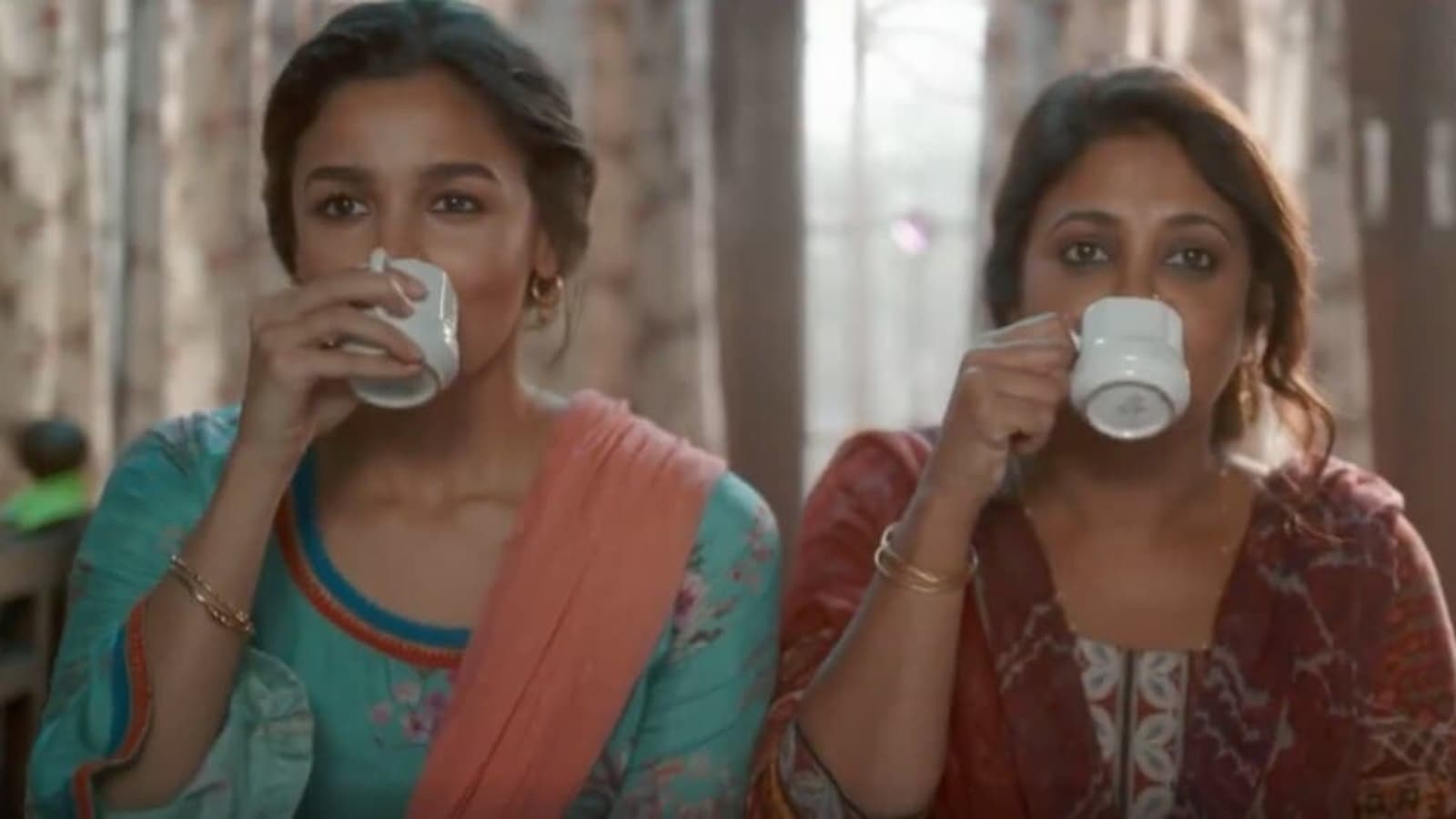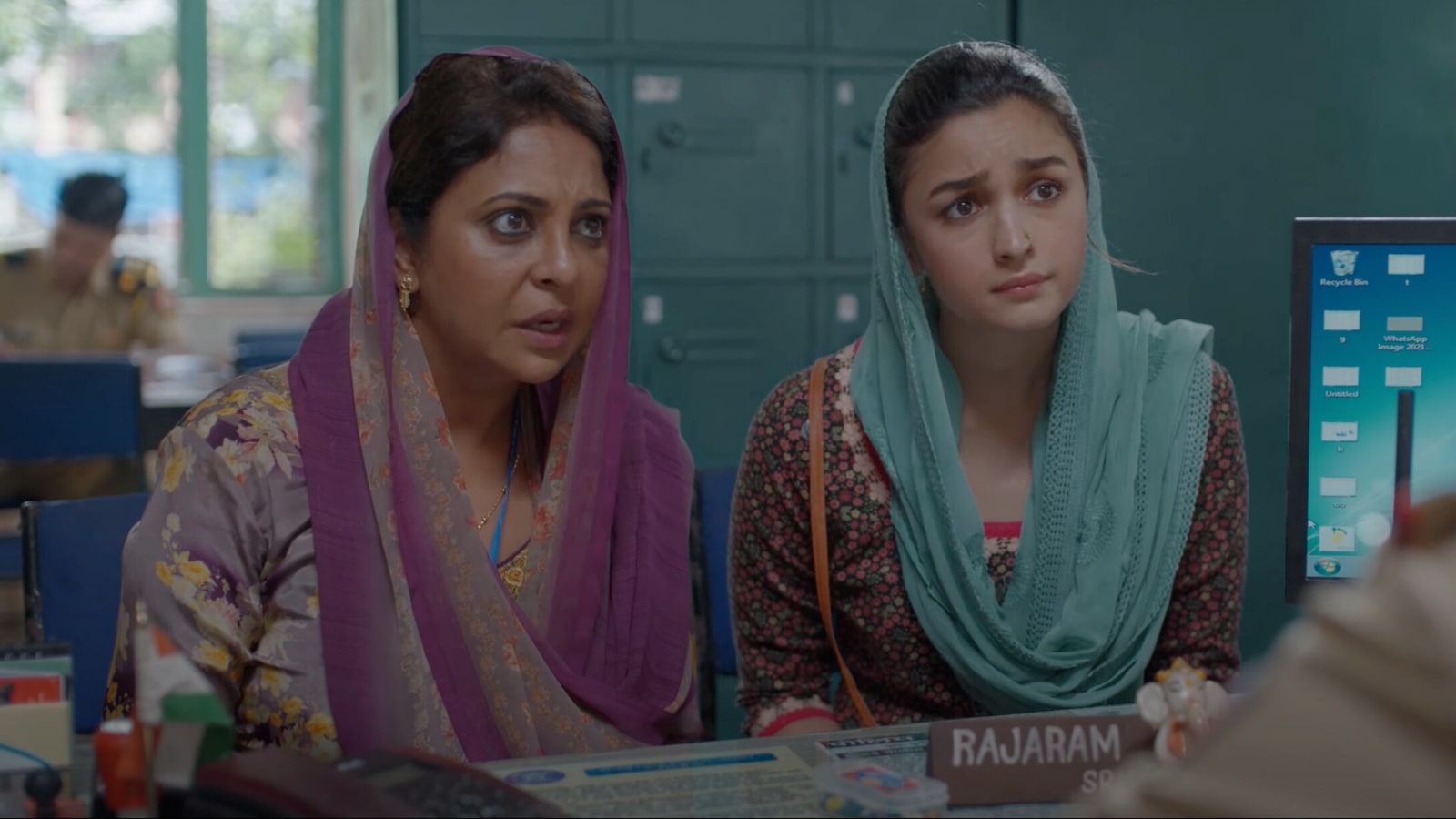Netflix’s recent release Darlings, directed and co-written by Jasmeet K. Reen, starring Alia Bhatt, Shefali Shah, and Vijay Varma, has taken the internet by storm and sparked several conversations regarding domestic violence. It is a dark comedy that revolves around Badrunissa (Alia Bhatt), who struggles with her alcoholic husband Hamza’s abusive temperament, played by Vijay Varma. When his abuse finally causes irreparable damage to her life, she and her mother seek revenge.
While the film has been critically acclaimed worldwide, it also has received backlash for allegedly promoting violence against men. While it is ludicrous and baffling to watch how the conversation around a film made on domestic violence caused by men is shifting into abuse against men, it is worth questioning what it is about this film that evokes such a reaction from people.
IT is a dark comedy that revolves around Badrunissa (Alia Bhatt), who struggles with her alcoholic husband Hamza’s abusive temperament, played by Vijay Varma. When his abuse finally causes irreparable damage to her life, she and her mother seek revenge.
Domestic violence is one of the most normalised and often-ignored crimes that women suffer at the hands of men. The story of Badrunissa is as old as time. Her husband comes home drunk every night and batters her face and body. As he enters through the door and calls out “Darlings!” in his inebriated state, it sends a chill through the audience because we all know what will follow even before we witness it on screen. Then, the next morning he apologises, blaming it all on the alcohol.
Badru’s story is not just her own—it is a story that has been taking place behind closed doors for centuries. Agonised shrieks, muffled cries, and the angry thud of door-haunting noises that compel the neighbours to turn up their television and music volume, or to talk loudly so that they can blissfully ignore the violence that takes place within their earshot.
The initial tragedy of Darlings lies in its predictability. As Badru’s fate unfolds exactly as we fear it would, the audience is once again forced to confront the reality of many Indian women for whom the shelter of their own homes becomes the source of their trauma and abuse.
It is slightly disconcerting to notice how such criticism only extends their sympathy to an abuser and shies away from addressing the very real depiction of domestic violence that Badru suffers throughout the film. It is not ‘mutual abuse’ when a survivor hits back at her abuser in self-defence.
As Badru’s mother begs her, again and again, to leave Hamza to save her life, Badru clings to denial, and her hopes of a happily-ever-after that everyone except her knows is nothing but a pipe dream. As Shefali Shah’s eyes shine with frustrated tears, anger, and grief over her daughter’s plight, the audience grows restless with the impending horror that awaits Badru and every woman who is doomed to suffer with a man like Hamza under the same roof.
When the inevitable happens, and Badru suffers a miscarriage after being thrown down a flight of stairs by Hamza, she finally comes to her senses and seeks revenge.
The subject of domestic abuse and the very reality of men becoming monsters to their family members within the closed walls of their homes is often treated as a taboo and whispered about in a hush-hush manner. Darlings do away with any such reservations and, through the use of dark humour, approaches the central theme of the film head-on.
Certain groups of people who claim themselves to be Men’s Rights Activists have criticised the film because the protagonist seeks revenge rather than taking the moral high road. Many have deemed that the film’s indulgence in ‘mutual abuse’ sends out an unsavoury social message.

It is slightly disconcerting to notice how such criticism only extends their sympathy to an abuser and shies away from addressing the very real depiction of domestic violence that Badru suffers throughout the film. It is not ‘mutual abuse’ when a survivor hits back at her abuser in self-defence. Much can be said about the ethics and morality of violence being meted out with violence. However, one cannot claim a moral high ground and give out judgement as to how a survivor of domestic violence should treat her abuser.
Throughout the film, Hamza tries to convince Badru that she should forgive his abusive behaviour because “I am a bastard, not you… “. Doe-eyed, ever-hopeful Badru laps up his words while her mother keeps warning her that, ‘some men are like scorpions and they would never stop stinging.’
Badru rescues him from the police station when he promises to become a better man and give her a child. The police inspector takes out his frustration on Badru’s naivete when he spits out, “Men behave like this because women like Badru let them.”
This scene highlights society’s insensitivity to the psychological conditioning and trauma that domestic violence survivors suffer from. By putting the onus of staying in an abusive marriage on the survivors, society relieves itself from having to take any responsibility for the injustice that occurs.
In the second half of the film, Darlings steers away from its predictable trajectory as Badru empowers herself through revenge. Survivors often find revenge as their only weapon when they are failed by those very institutions of justice that are supposed to protect them. It is an escapist fantasy that allows them to reimagine their world where the power dynamic is subverted, and the survivors can claim some kind of agency over their abusers and, subsequently, their own lives.

However, in the end, Badru decides to spare Hamza his life so that his death does not haunt her for the rest of her life. Even as she chooses the high road and walks away from Hamza, he threatens to come back and ruin her life until the moment he gets hit by the train and dies. His death, conveniently caused by accident, spares us from having to confront the harsh reality thereafter. But a mere look around our own society would tell us what could have happened if Hamza had been spared.
Perhaps, the recent case of the photographer, Sania Khan, 29, who was shot dead by her ex-husband Raheel Ahmed, after she started opening up about her healing journey from her abusive marriage on the internet, would show us a probable fate that Badru might have suffered if Hamza had been spared his life by the end of the film.
True empowerment came to Badru not through revenge but by the complete erasure of her abuser, Hamza’s existence, from her world. However, the act of revenge was necessary for her to achieve this state.
Emerald Fennell’s 2020 film Promising Young Woman also depicts a similar theme of revenge where a young woman, haunted by her traumatising past, reconfigures her life to seek revenge on the perpetrators. This film portrays the protagonist’s absolute need for revenge while also highlighting how it stagnates her growth.
The dichotomy of revenge plays out throughout the film. It becomes evident that perpetrators would not be punished unless she seeks revenge, while it also becomes forebodingly clear that perhaps, the protagonist would lose herself and her life in the process of seeking it.
Also read: Darlings Film Review: A Dark Comedy That Explores Why Women Stay In Abusive Marriages
The film is not a critique of revenge; rather, it highlights how one must resort to dangerous means of seeking revenge when the higher authorities do not lend credibility to the survivor’s accounts. While one can acknowledge the tragic consequences of seeking revenge, as long as society keeps failing survivors of domestic violence, it also forfeits its right to criticise how the survivors find their means of fighting back.
The film is streaming on Netflix.
Also read: Maid: Netflix Series Addresses The Complexities Of Generational Trauma Between Mothers And Daughters
Featured image source: India Today
About the author(s)
Debabratee (she/they) is a student of English Literature at Jadavpur University. When they are not found reading or writing, they are found running after their pet dog and cuddling with him. They are avid binge-watcher of all kinds of OTT content and like to dissect and analyse them in their free time.



